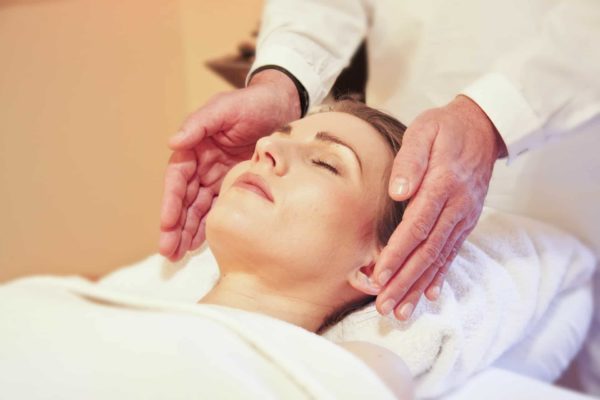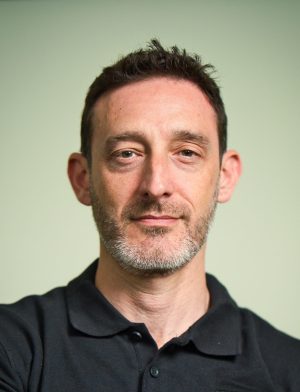
Craniosacral therapy has its roots in the work of Osteopath William Garner Sutherland (1873-1954), who in the early 1900’s observed that the cranial bones have a very subtle rhythmic motion, and that the cerebrospinal fluid that bathes our brain and our nervous system has its own ‘pulse’ and is essential to maintaining our health. He termed this system Primary Respiration. Initially the treatments he gave were mechanistic in approach, but towards the end of his career he came to the strong belief that the deepest and most powerful healing work was more energetic or biodynamic in form.
The therapy employs a gentle touch to harness the body’s innate healing capacities, fostering a profound sense of balance and well-being.
Acknowledging the intrinsic link between mind and body, Craniosacral Therapy works with the subtle rhythmic motions present throughout the body, particularly in the head, spine, and pelvis.
These motions, when freely and harmoniously expressed, signify a state of optimal health and vitality. A connection has been found between the possibility for the body to freely express such motions, and the capacity for important glands in the brain (like the pituitary and the pineal gland) to produce necessary hormones to support and regenerate the body.
During a session, clients recline or sit comfortably while the therapist, with a light touch, tunes into these subtle motions, identifying any imbalances and employing a range of non-invasive techniques to induce relaxation and stimulate the body’s self-healing mechanisms.
Frequently Asked Questions:
Is it similar to a massage? No, in Craniosacral Therapy the hands of the therapist are generally still, with no push, manipulation or movement.
How many sessions are needed? There are no set number of sessions. Sometimes people report relief from their symptoms after one or two treatments. For long-standing problems or chronic conditions further sessions may be needed.
What conditions can respond well to Craniosacral Therapy?
- stress
- performance anxiety
- tinnitus
- digestive issues
- fertility issues
- trauma
- post–operative recovery
- depression
- anxiety
- general aches and pains
Mothers and Babies
Having a child is one of life’s most profound events. CST can help provide support to mothers, partners and babies in this period of physical, emotional and psychological change. In my experience of working with ante and post-natal women CST sessions can help:
- relieve minor ailments (such as back pain)
- settle nervous and hormonal systems
- support the body’s current and future physical changes
- preparing for birth
As it is so gentle, CST can be beneficial for babies helping:
- establish and supporting breastfeeding
- developing good sleep patterns
- helping with colic, reflux and allergies
- torticollis (wry neck)
- bonding with parents and siblings.
Therapists by Craniosacral Therapy
Alex Paolillo BCST
costs: 1 Hr: £80
Package of 2 sessions for £150 (save £10) Package of 5 sessions for £350 (save £50)

